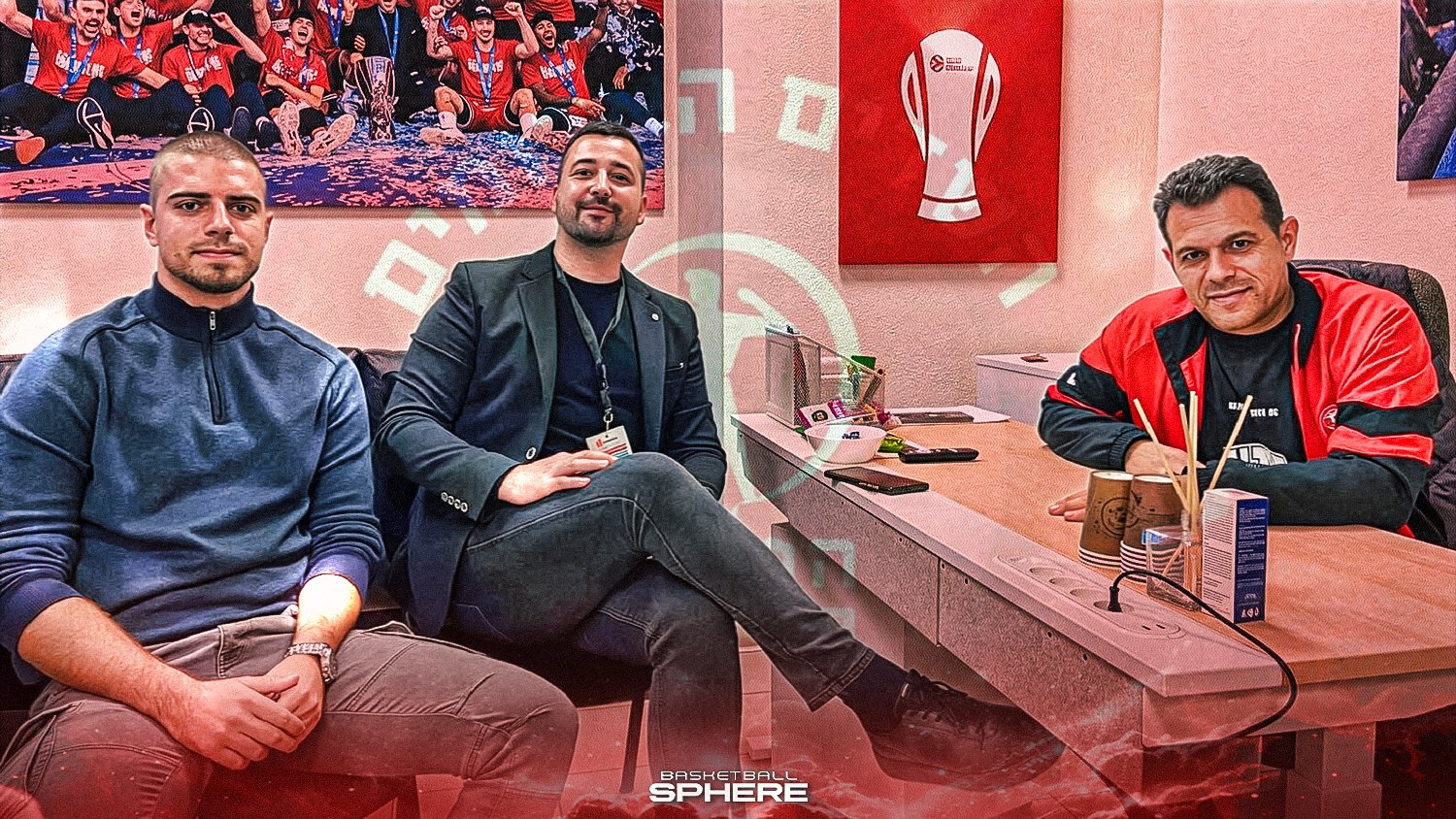Dimitris Itoudis, the head coach of Hapoel Tel Aviv, spoke exclusively to Basketball Sphere about the current course of the season, potential changes in the EuroLeague system, the situation with Ioannis Sfairopoulos in Crvena Zvezda, and numerous other topics.
Dimitris Itoudis is someone who has marked the modern era of the EuroLeague. He is considered one of the most successful coaches of the younger generation, and he has opened a new chapter with Hapoel Tel Aviv, with whom he earned a spot in the elite competition in great style. After winning the EuroCup, the ambitious project led by the Greek coach began to instill fear even in the EuroLeague, where they are currently among the best teams in the elite competition and represent a real breath of fresh air on the biggest stage of the Old Continent.
All of this might not have been expected after the extremely challenging period Dimitris Itoudis went through last summer. Things could have gone in a different direction, but the Israeli team overcame all obstacles and now belongs to the very top of European basketball.
You went through extremely tough preparations, you yourself said they were the hardest of your career. Yet, the team now looks very good and competitive. Can you tell us something about that entire process? Did all those difficult circumstances, injuries, and numerous absences help the team bond together?
“I said these were some of the toughest preparations I’ve ever had, considering that there are specific days the EuroLeague allows us to start training. We had five players on the Israeli national team, one on the Brazilian, and one on the Serbian team. As you can see, the consequences of that are that Yam Madar got injured after the national team with an overloaded knee, and now he’s not with us because he needs to work on rehabilitation.
Bruno Caboclo won the championship with Brazil, and we congratulated him, but his back problems came back again. He’s not with the team either. On top of that, in the middle of our preparations, the Israeli Basketball Federation called us to play in the Israeli Supercup. They cut our preparations in half. I hope we won’t pay the price for that in the future.
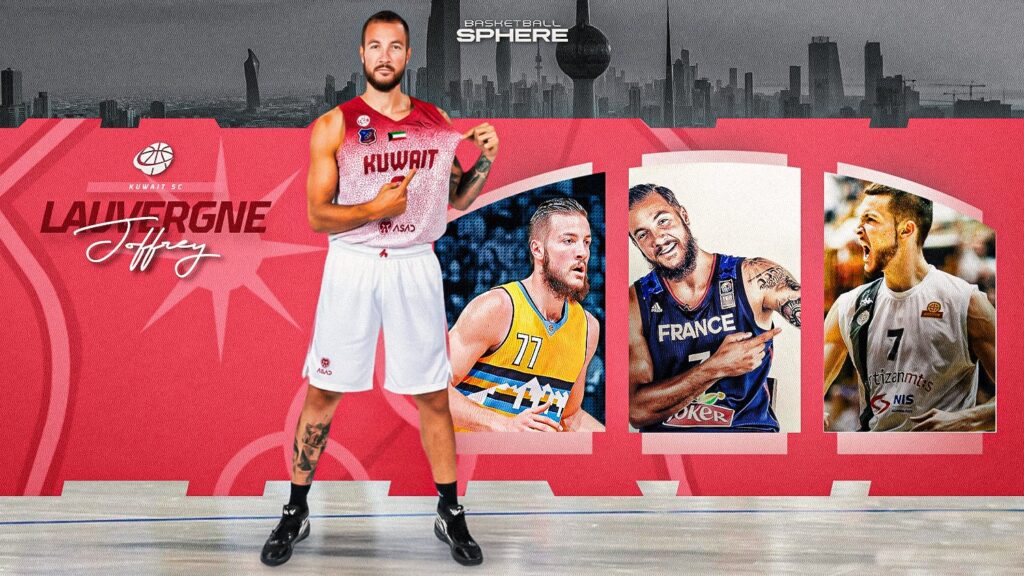
The team, as we said, needs to unite and work hard. We worked very seriously and used those preparation games, but under the existing rules. When I say someone cut my preparations in half, I mean that in those friendly games, I could use the players I wanted, while there I could use only five foreigners. Five others worked individually, and you can’t do proper preparations that way. Even now, we have players who haven’t had a single practice together. However, I said that the players were very serious, and results-wise, we are doing well.
We still need to add things to our game, in terms of spacing, passing, defense, rebounding, one-on-one plays, those details… Wins certainly help create a good atmosphere and a positive picture of what we’re building. It doesn’t mean we’ll get comfortable and think we’ve become unbeatable. No, on the contrary. We have things we need to improve, but we’re satisfied that we find ways to win.” – said Dimitris Itoudis at the beginning of the interview.
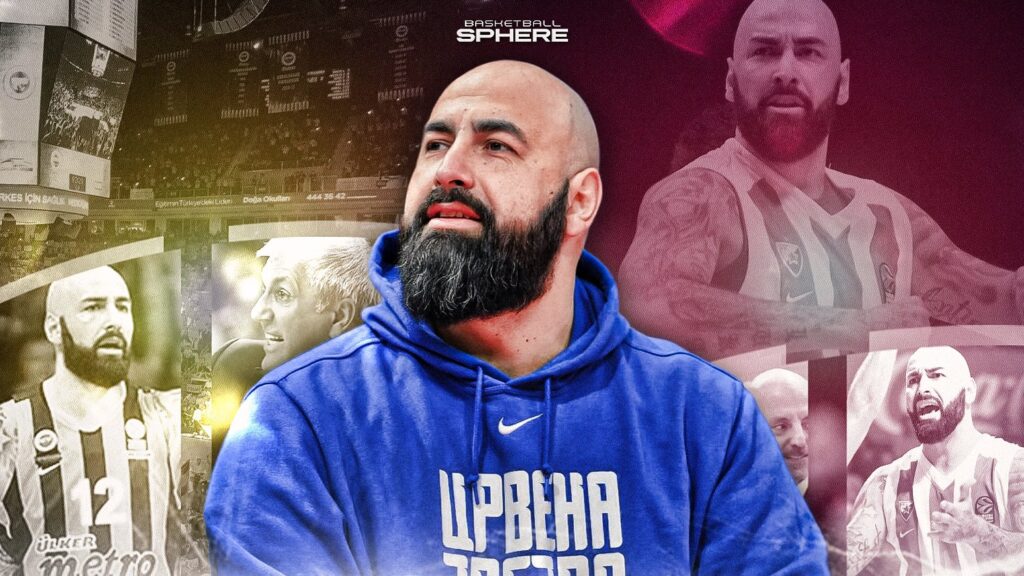
One of the key individuals responsible for the team’s strong results is Serbian national team player Vasilije Micic, along with the rest of the squad. He had a challenging summer with the national team, where things didn’t go the way he wanted.
Can you describe how you managed to find his role within your system after such a difficult period, since he now seems to be playing the way he truly can and as expected when he signed for Hapoel Tel Aviv? And has he fully recovered from his injury?
“We’re very happy that he’s with us and that he’s a big part of what we envisioned. Among other things, he’s a very important part of that process. As for how he found his place, that’s because of him and his own contribution to individual work, rehabilitation, training, and understanding the game, teammates, coaches, and the system.
Vasa played for the national team while still injured. That’s known. He was one of the players we were asking about every day, checking if everything was okay. Of course, we respect the national teams, but someone also pays those players. He’s still in the process. We have a very good analysis of his condition, both from our doctor and from his doctor. He sometimes doesn’t play in domestic league games to recover. We’re here to cooperate and help.
Vasa deserves all the credit for that. He loves what he does, loves to play, and loves being an important part of what the team has envisioned, and that’s exactly how he behaves in every practice and game. It doesn’t mean he’ll always play at his peak. That’s why we signed so many players, so someone can fill his spot when needed. Personally, I’m very happy, and when I see that Vasa contributes, enjoys what he does, and on top of that is a leader on the court, it makes me proud.”
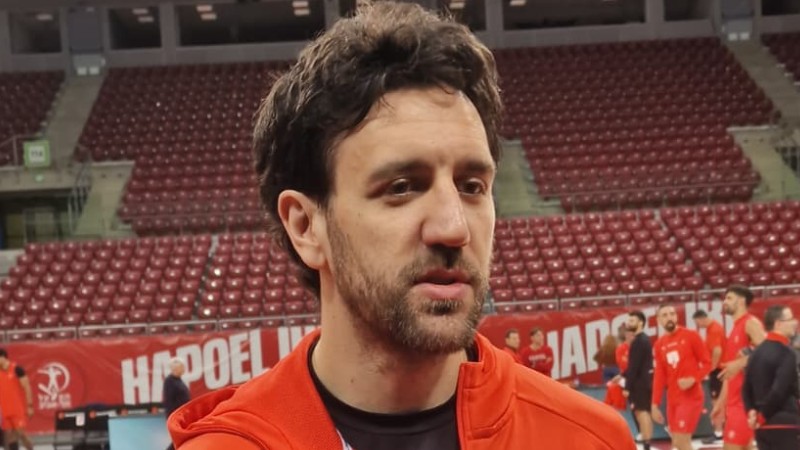
You yourself have said that it’s very important for someone to love what they do. Judging by everything we’ve seen since you appeared on the coaching scene, the same can certainly be said for you. And we don’t mean just the coaching part itself, but everything that this profession includes – communication with the media, with people from the club, and with everyone involved in the basketball project.
That was the case in all your previous environments – Panathinaikos, CSKA, Fenerbahce – and it seems quite similar now in Hapoel Tel Aviv. How much does that help and further motivate you, especially with an ownership structure that is so involved in the entire process and has such a great passion for basketball?
“I’ve talked a lot with Ofer about his vision of the club. The second important thing is the fans. Hapoel Tel Aviv has both. Alongside Ofer, there are also several other people in the club, successful businessmen who are with the team, and those are two important pieces of information for me to understand what we want. Thank God, with the help of everyone – staff and fans – we managed to enter the EuroLeague right away. We had to react immediately and build the team, because we don’t have a long-term contract with the EuroLeague.
For me, it’s important that we know where we stand and that we communicate every day. It’s very important that Ofer is available to us, because people with so many responsibilities usually don’t have much time to talk about sports. Every week we schedule a meeting. They are new to this sport, but they have great experience in their business. One can help the other. Everyone has a different mentality, but all the other owners I’ve worked with also had experience.
Panathinaikos couldn’t function without the Giannakopoulos family, or Fenerbahce, or CSKA when we talk about my great friend Andrey Vatutin. I was supposed to stay two more years, but the war started. We didn’t end our cooperation because something wasn’t right – quite the opposite. I hope CSKA will return to the EuroLeague. We need that. Russian, Turkish, Israeli, Spanish, Serbian, Italian clubs… My dream is to create a EuroLeague with 30 teams.” – explained Dimitris Itoudis.
What we’ve achieved together this season in @EuroCup is more than a title. It’s a story of trust, belief, and purpose built in the heart of Tel Aviv and carried by everyone who wears this club’s colors with pride. pic.twitter.com/FisKMTnhBB
— Itoudis Dimitris (@ItoudisD) April 13, 2025
With that answer, you gave an excellent introduction to the next question. The EuroLeague has expanded, with more games, more double-round weeks, but also a significantly higher number of injuries. What should the EuroLeague as a competition do to better adapt the calendar or introduce new ideas that would, in any case, help not only the players but also further contribute to the growth of the entire competition, which outside the NBA, is the most elite in the world?
“I have a lot of ideas that I can share with you, and some that I can’t. Those ideas need to reach the right ears – the people who should be talking with us. As the president of the coaches’ association, as a coach, but also as a basketball lover. Maybe I’m subjective, but basketball is the best sport in the world. There’s a great level of interaction, decisions are made in a split second, players make choices and determine results under pressure. For me, that’s what makes it the best team sport.
I don’t think only the EuroLeague should do something – it’s about synergy. There are many actors and many things that need to align. We have different rules in domestic leagues, different referees, and a division between FIBA and the EuroLeague. Our common interest should definitely be basketball – how to make it better and help it develop. The EuroLeague is the most attractive competition in Europe, and if we start from there, we have to think about how to expand that best league and create a better system. I told the EuroLeague that we started another season by adding two more teams, without considering whether the percentage of teams that qualify for the next stage is proportionate to the total number of teams.
We went from 16 to 18 teams, and nothing was changed. Back when there were 16 teams, eight qualified for the playoffs – that’s 50 percent. In the NBA, there are 30 teams, and 16 make the playoffs. That’s more than 50 percent. Then the NBA added the play-in – now 20 out of 30 advance. Meanwhile, we added two more teams – 18 – and still only eight qualified. We’re talking about the 2020 season. As the coaches’ association, we offered our ideas. Everyone wants the same thing – players, organizations, coaches. We’ve already seen how introducing the play-in created more excitement. Now we’re moving to 20 teams again, but only 10 reach the postseason. Maybe we should have 12 playoff teams, with the top four getting a bye.
But let’s discuss ideas before adding two more teams. Because that also affects coaches, who might lose their job over one win, players who change clubs, doctors who switch jobs. Let’s make decisions before going public with them. The EuroLeague is a privatized ecosystem that says it wants structure – I don’t care about passports, whether we have 12 Serbians, Americans, or Israelis. What matters to me is that the project grows. Now we have national leagues, and from country to country, there are different taxes and systems. In the U.S., everything is clear and equal.”

In this whole story, coaches are also very important figures. You mentioned that in the previous question, and the well-known saying goes that coaches are people who live with their suitcases packed. They should be part of the structure that contributes to the synergy between coaches and players, as they are the main figures who fill the arenas and attract the fans who follow this sport.
Can that whole structure do something in the future, considering that coaches are usually the ones who pay the price for poor results? For instance, we saw Ioannis Sfairopoulos dismissed by the ownership after just two games at the start of the season, and there have been several similar cases in European basketball, especially in Greece, where Aris and Panionios did the same thing.
“Ioannis Sfairopoulos is an outstanding coach and person, he’s done a lot for Crvena Zvezda. And I’m not only talking about his last stint when he left the club. He’s already done an excellent job there before and proved it with results. I can’t comment on their decision, but I can say that when a coach has a long-term contract, there should be a discussion about what the real problem is. Are injuries the reason? Surely that was part of it, but they know better.
As a coach, you know that when you sign a contract, you can also leave. But is that smart? Then why did you sign him for three years? I’m asking those who make the decisions. Okay, there are rules – Ioannis should be paid, and of course Sasa Obradovic is a good coach, but still… You sign a contract with someone and then remove him after two games. I’m not criticizing or commenting, I just know that Ioannis is an excellent coach and will find a job again – whether in a month or in a year.
The structure of the game and the competition system, how to combine it with domestic leagues – that’s another issue. Our club was called to play in the Supercup, and we couldn’t refuse because we would have been punished. Some clubs can afford not to play. When it was decided that the Israeli Supercup would be played, we wouldn’t have been able to use our Israeli players if they had advanced to the EuroBasket finals. These are decisions that make no sense, they have no logic.”– said Dimitris Itoudis.
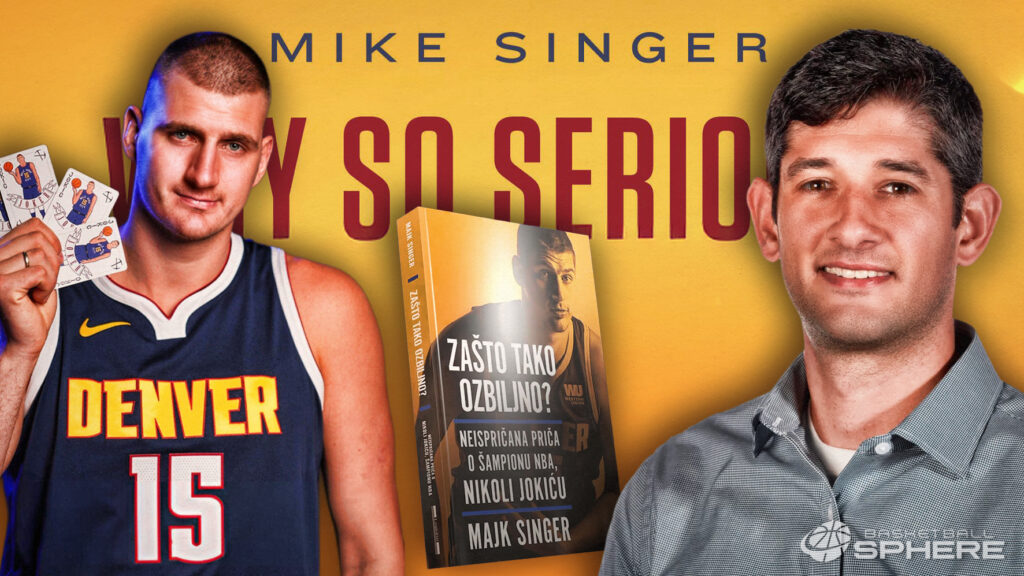
The coaching profession you’re in has brought you the opportunity to work with an incredible number of talented individuals throughout your career. Could you tell us a bit more about that legacy, regardless of the trophies? After all, as much as trophies matter, there are other things that are equally important, right?
“I’m very happy that I have around 5,000 contacts in my phone, and among them are more than 1,000 players I can call at any time. I’ve worked with greats, we’ve won together, we’ve lost together, spent a lot of time together — and that’s my legacy. Those are the people: coaches, management, fans, players.
Thank God, I still have that fire burning inside me, and I still have more to learn and to give back to the sport that has given me friendship, experience… You see those faces up there — they’re all smiling (he points to the team photo of Hapoel Tel Aviv celebrating the EuroCup trophy hanging on his office wall). Some of them won a European title for the first time, and I can’t even describe that feeling. It’s a privilege.”
To wrap things up, here’s a question “outside the box.” Based on your experience, how do players learn best? Many say it’s easier to learn through victories, but others believe that some players actually absorb lessons better after a loss — one that shakes them both individually and as a team.
“There’s truth in that, and I do believe it — that’s how life works, in any profession. I’m a big believer that regardless of the circumstances, at some point losses and setbacks will come — whether it’s in your professional life, friendships, marriage, or business. A fall or defeat will happen sooner or later. What’s important is that when it happens, you fall forward.
That loss teaches you something you didn’t have before — experience. And experience can’t be bought in a supermarket; it’s not for sale. It’s earned through mistakes and through doing something with dedication every single day.” – concluded Dimitris Itoudis with a smile at the end of his interview to Basketball Sphere.
Up To 100 €/$ Welcome Bonus
Up To 100 €/$ Welcome Bonus
Up To 122 €/$ Welcome Bonus
Up To 122 €/$ Welcome Bonus
Up To 100 €/$ Welcome Bonus

